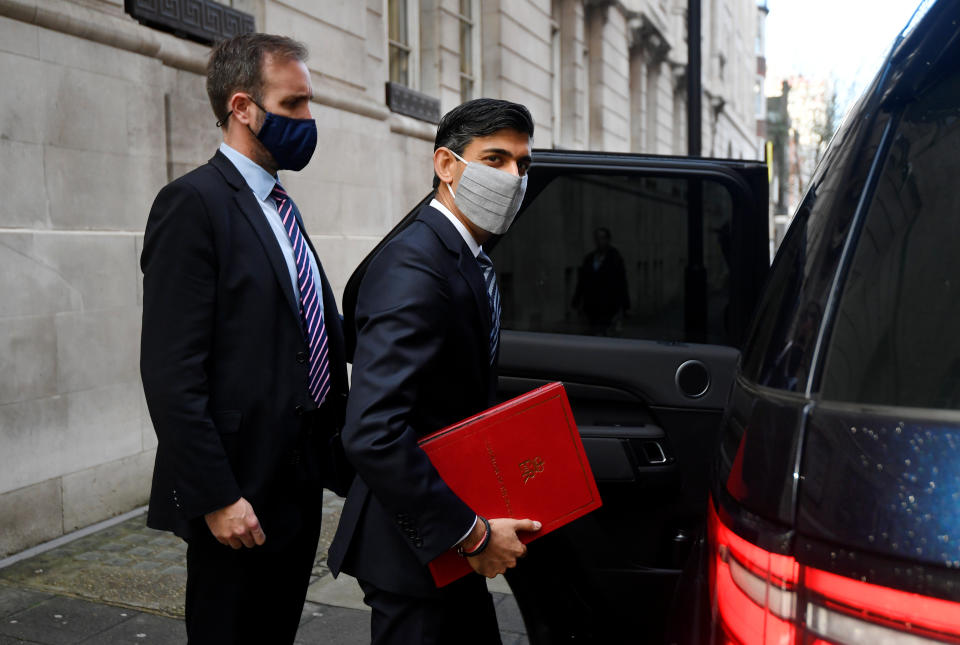UK needs £40bn tax hikes as economy 'cannot be fully protected'
Watch: Why experts say tax rises seem inevitable in Britain
Taxpayers have been warned large tax rises are “all but inevitable” in Britain, plugging the gap between an economy left smaller and spending pushed higher by the coronavirus crisis.
Britain will need to start raising more than £40bn ($52.2bn) a year in the middle of the decade just to stop debt “spiralling upwards,” according to analysis by the Institute for Fiscal Studies (IFS) published on Tuesday.
The think tank defended the UK government’s unprecedented £200bn spending to shore up the economy during the pandemic.
Director Paul Johnson said the chancellor Rishi Sunak “shouldn’t worry unduly” about the unprecedented surge in spending and borrowing for now, given ultra-low borrowing costs.
But he said stimulus measures would not be enough to fully protect the economy, hitting tax receipts long-term. “We are heading for a significantly smaller economy than expected pre-COVID, and probably higher spending too. Without action, debt–already at its highest level in more than half a century–would carry on rising.”
READ MORE: UK unemployment hits 1.5 million on record leap in redundancies
The IFS expects public sector net debt to hit 110% of national income by 2025, compared to an 80% level prior to the pandemic.

It highlighted the government’s vulnerability to any rise in interest rates, which would push up debt interest costs. It argues more debt should be issue on a long-term basis, which would “lock in the current very low real rates for a greater share of government debt.”
Some economists argue Britain could inflate away much of the public debt burden, but Johnson told BBC Radio 4 growth and inflation were unlikely to be high enough to make it viable in years to come.
“Tax rises, and big ones, look all but inevitable, though likely not until the middle years of this decade,” added Johnson.
But the IFS made clear it was not pushing for immediate tax hikes, saying the chancellor would be “unwise” to seek to balance the books now. “Over the next 18 months at least, government policy needs to be focussed on supporting the economy almost irrespective of short-term impacts on borrowing,” said the IFS’ latest report.
The Treasury declined to comment, but chancellor Rishi Sunak has recently stressed his desire to “balance the books” once the coronavirus crisis eventually subsides.
“It's important that this year we acted in the way we did, which meant borrowing a lot to try and protect as many jobs as possible and protect as much of our economy as possible so that it could emerge on the other side of this, that in our long run interests,” he said last week.
“But I think the other point, which is I think entirely most people would reasonably agree we can't carry on borrowing at these record levels forever and a day. So, once we get through this, we'll need to look at that and make sure that we have strong public finances.”
Watch: Why job losses have risen despite the economy reopening


